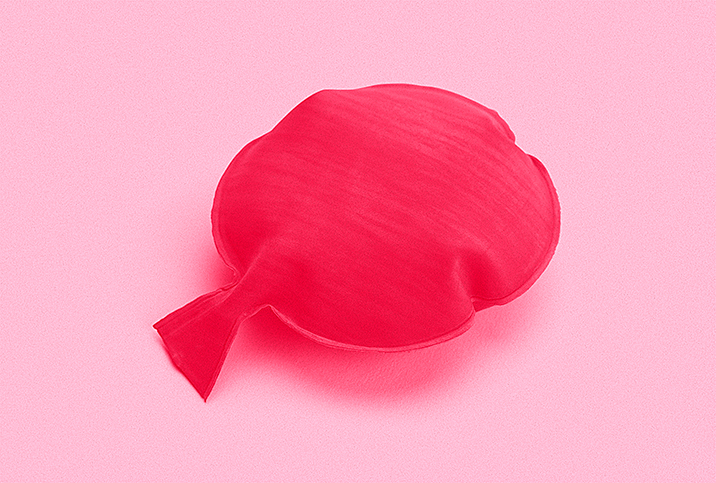When you're caught up in the heat of the moment, nothing is more of a mood killer than frantically explaining that the noisy gust during an impassioned switch from doggy to missionary was not, in fact, a poorly timed attempt to cut one loose. Whether referred to as a fanny fart, vart or the more socially palatable vaginal noise, the sound and feeling created by air escaping the vagina is most commonly dubbed "queefing."
Because of its embarrassing auditory similarity to anal flatulence (read: farts), many women deem queefing a social and sexual nightmare. But this awkward phenomenon is totally normal.
The magic of the moment
While queefs are infamous for making an appearance during a steamy encounter, the bedroom isn't the only place a bit of air might escape through a woman's front door—imagine the moment of horror when a poorly timed queef makes itself known during the downward dog pose in yoga class.
"(Queefing) is caused when air is trapped in the vagina at some point; it hits the walls on its way out in a way that causes a sound," said Heather Irobunda, M.D., a Queens, New York-based OB-GYN.
Whether it's during coitus or while you're working out, any position that allows the entrance of the vagina to open increases your chances of air entering, making way for a queef to occur when you change positions and your body pushes the air back out.
So why is queefing so common during sex? During arousal, your vagina expands to accommodate a penis or toy in a process called vaginal tenting, but the extra wiggle room also creates even more space where air can get stuck.
While there has been minimal research on queefing (who really wants to answer a bunch of questions about their noisy vag?), a survey in the 2012 issue of ISRN Obstetrics and Gynecology found that while just 20 percent of the women surveyed self-reported queefing, a significant 54 percent of these occurrences happened during sex.
Queefing is here to stay
Unfortunately, there's little that can be done to stop sound from slipping out during sex.
"Our bodies do a lot of funny things. While a queef may not make the most romantic or sexy sound, it is a common thing," explained Rachel Gelman, a San Francisco-based physical therapist specializing in pelvic health and sexual wellness. "Some people may find that limiting position changes during sex may prevent queefing, but there is no guarantee that a queef still won't happen."
If letting one rip is a buzzkill for you, avoid aggressive thrusting motions during sex, which can lead to more air being pushed into the vagina. Opting for grinding and rocking motions or keeping the toy, finger or penis inserted in the vagina during position changes may reduce the frequency of queefing.
Remember: Most people with a vagina will queef at some point in their lives. Which means your partner or workout buddies are likely well acquainted with the noisy, but completely normal, occurrence. So next time a queef strikes, keep calm, laugh it off and carry on.















